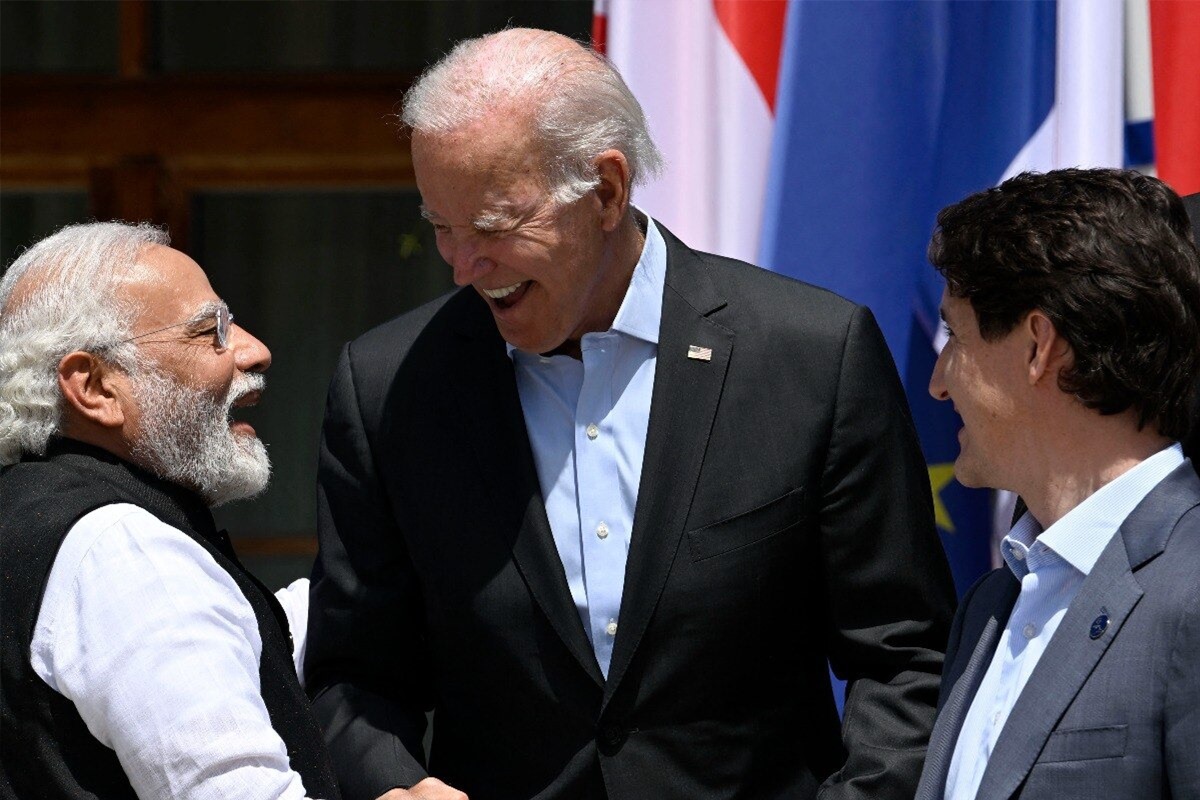In what way is the US involved in the recent drama initiated by Canadian PM Justin Trudeau on the killing of terrorist Hardeep Singh Nijjar?
Informed Indians are primarily divided in two groups on this question: those who think that this entire episode has been guided and directed by the USA, and those who think that the US knew and approved, but probably was not involved actively from the time Trudeau decided to use it as a ploy to garner electoral support from Khalistan lobbies.
Irrespective of partial or full involvement of the Americans, it is safe to assume that they provided Trudeau with the basic information that got him to react, and Trudeau reacted in a manner that appeared appropriate to him. As I have argued before, US allies (and I’ll add: especially white, Western Christian allies) get a nominal window before Washington inserts itself to cash in on the effects, and that this case is no different for them. A recent case of the hallmark US intervention is Niger, where White House waited for France to react to the coup and stepped in immediately afterwards.
Back to the Trudeau drama, the US has two well-known vitals: It needs India as a proxy against China, and the White House (not the DOD) has a problem with PM Modi. An Indian election in 2024 is a big event to look forward to – an event that can be tampered with, for an outcome that the Beltway desires. But the US deep-state has learnt by now that that is a fifty-fifty affair; it is incredibly difficult to herd a vast country like India. The flip-side is another 5 years of Modi, and that could compound the delay in their China containment plans.
And so, the deep-state moved a few pawns on the chessboard. One of them is throwing their weight behind Trudeau’s wokeism in an effort to keep New Delhi in a fix. EAM Jaishankar’s recent visit to the US marked Anthony Blinken putting up a glum face for every photo opportunity (makes one miss the charm of the Cold War era diplomats), and getting the Council for Foreign Relations to press him for outlining the extent of Indo-US relationship in the international arena.
How did Jaishankar respond? He was at his clinical best; but that could wait. Before that, let us check a few of the recent positions that India has taken in the international arena that the CFR interviewer should have kept those in mind (as should have the US deep-state).
I2U2 initially comprised only India, Israel, and UAE. The USA inserted itself into it. The original members allowed this; perhaps they were considerate about the fact that Washington – sidelined in the affairs of the Middle East badly needed a boost. I2U2 grouping also provides the USA a chance to enhance their ability to check China in West Asia.
A renewed QUAD, which has the single-point agenda of keeping a check on China’s maritime influence in the Indo-Pacific theatre, has India as its member. The group looks fairly robust and active these days.
Besides, there is also the IPOI, or the Indo-Pacific Ocean Initiative Pillar on Trade Connectivity and Maritime Transport – a lesser-known initiative where India partners the USA among others.
There is already the G20, the joint statementof which due to president India’s efforts provided some boost to Joe Biden’slost credibility. This G20 also witnessed the announcement of the Indo-Middle East-Europe Spice Route or IMEE where the USA is a major stakeholder. These corridors could well be as important as the last century oil and gas pipelines.
This disinclination to consider the series of serious efforts that India has taken to cement a stronger strategic relationship with the US, while choosing to hold on indefinitely to India’s stance on Ukraine, or India voicing its opinion against Canada supporting a terrorist underlines the inherent narcissistic racism that is a part of the US and its western lackeys like the EU: white, Western Christian states, clearly unwilling and/or incapable of registering the fact that a non-West, non-white, non-Western Christian nation could have a say.
EAM Jaishankar outlined a portion of that in his characteristic brilliance during the CFR interview. He delicately touched upon the fact that the globe has changed a lot over the past couple of decades, and that every nation is making some or the other adjustments in comprehending and resetting their international equations, and that the US should too. It is better that this kind of a reset retains minimal white Western high handedness which has historically always tried to decide the different levels of superiority, something that is being tried again today on India, by the Five Eyes.
Jaishankar hinted that the partnerships that can stand up in this age of interconnectedness and democratization of information, should be based on capabilities and mutual necessities, like the Indo-Russian relation – which stands strong because it is based out of mutual commons, and is doesn’t have trappings of religious or civilizational racism.
With Washington deciding to move along with its old pets – Western supremacy and racism, New Delhi has chosen to use its version of multi-polarity based out of equality and mutual interest. Do movements of these pawns on the global chessboard signify a trend? Or are these just intermediary stunts – moves that can change as future challenges emerge? We’ll keep a watch.
(Arindam Mukherjee is a geopolitical analyst and the author of JourneyDog Tales, The Puppeteer, and A Matter of Greed.)
Disclaimer: Views expressed are the author’s own.









